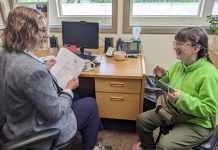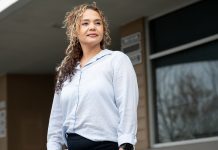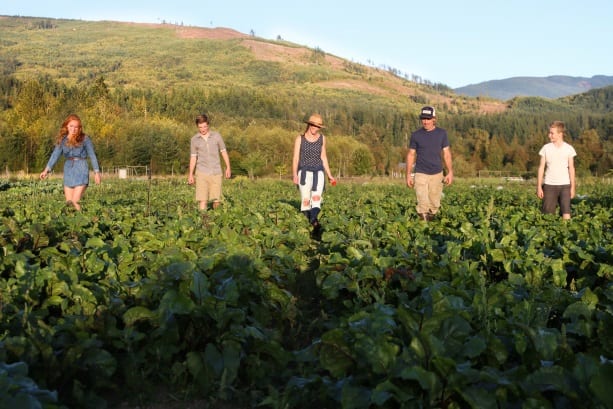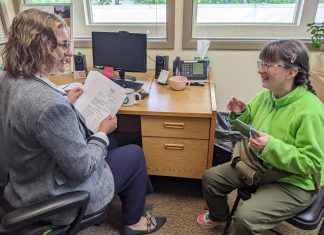Mike Rowe, star of the television show Dirty Jobs noted, “If you’re a farmer, you’re facing challenges unlike what most business owners would ever remotely contemplate. Real estate challenges. EPA challenges. Energy challenges.” “Every single thing that is in the headlines affects farming, but farming … is never in the headlines.”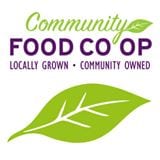
What could possibly possess a young couple to become first-generation farmers?
Geoff and Anna Martin met at Seattle Pacific University in the mid-1990s when he was anticipating a career in medicine and she was drawn to the study of nutrition. Organic standards were being debated and Anna’s chemistry professor postulated that organic foods were no different biochemically, while her nutrition class dug deeper. “We studied the secondary and tertiary effects of eating chemically laden food,” she explained. “We looked at who is the heart and lungs behind this industry and who is it effecting – that’s what hooked me into farming.”
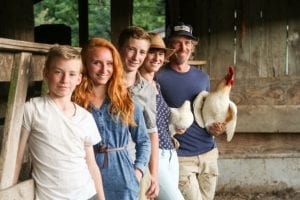
After graduation, Geoff worked at a university high-throughput sequencing technology lab and was disillusioned at the trajectory of that field. Seattle became the perfect storm for social unrest and erupted into the 1999 WTO Protests. When Anna finished her degree, they decided that a road trip might provide perspective and it led to a Primitive Skills Gathering in Oregon. They remained there for a year learning about farming and many other facets of building a life of self-sustenance.
Sustainability, Community Supported Agriculture and the social farm-to-table movement were just picking up steam two decades ago and Geoff, Anna and now their three children had acquired the tools to build Osprey Hill Farm.
They had passion, knowledge and a guiding philosophy that borrows a bit from the Hippocratic Oath: First, do no harm. In this case, it’s all about the soil. Naturally derived soil nutrition – from organic nutrients to farm by-products – is key to growing healthy plants without the need for synthetic nutrients or pesticides.
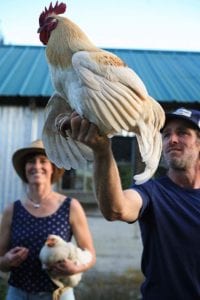
They define their farm as “A small, organically grown family farm that is taking big steps toward sustainability. We enjoy the challenge and lifestyle that goes hand-in-hand with growing really great food.”
Since they raise everything from seed to egg and also process their animals for meat, they seek balance in every phase of the circle of life. They take the principles of organic farming to heart and Anna shared that their best business practice typically comes from buying local.
Organic certification is an arduous process and Geoff and Anna have found that the best way to guarantee sustainable practices is to meet their producers and actually see and touch what they’re buying. Their animal feed, for example, is now sourced on the east side of the mountains where everything is local except for the kelp.
“It’s beautiful, super high quality and certified GMO-free,” Anna explained. “We have the freedom to make these choices because we’re not locked into certified organic purchases and we’ve discovered higher quality and higher integrity starting ingredients than if we were strictly going by organic standards. I encourage everyone to buy local and meet their producers. It’s more important than a label.”
“The business of farming is as unpredictable as the weather,” states their blog. “Each season has its own set of variables and new challenges.” According to Anna, their biggest lesson learned is that the world of food is as trendy as fashion or music.
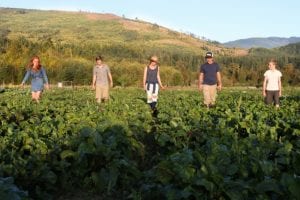
“Kale is yesterday’s news,” she laughed. “We’re constantly trying to keep up with current likes and dislikes as it ultimately dictates what we’ll grow next year.”
They follow trends by interacting with innovative chefs and seed catalogs. A local seed company familiar with Washington’s climate lets them trial certain food items. Instagram is a great way to see what chefs are experimenting with that may indicate the next big food trend. “Now that we’ve been in the food scene for two decades – just like fashion – we’re coming back to older trends like heirloom vegetables.”
Geoff and Anna are mentors in Sustainable Connection’s Food to Bank On (FTBO) program that provides classroom sessions for beginning farmers who learn from those modeling a vibrant local economy built on sustainable practices. They make sure that participants understand that in the present time they’re actually preparing and planning for next season.
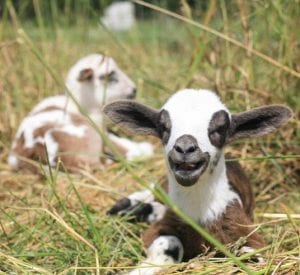
The Northwest Agriculture Business Center (NABC) had a Skagit county pilot project with a wholesale Farmer’s Market just for chefs and realized that chefs had just as much of a problem getting out of the restaurant as farmers had leaving their farms. It was a great concept and hit a niche but needed a different approach. Farmer’s Markets were a hit, but what about restaurants, schools, hospitals or jails?
For the past seven years, Osprey Hill Farm has been involved with Puget Sound Food Hub, a grassroots effort concerned with how to exponentially reach a larger audience with local food. From that seed grew an online farmer’s cooperative platform of 50 farms with hundreds of buyers from King, Whatcom, Skagit and Island counties who harvest and deliver to a central facility.
Venture out into Whatcom County and meet your local farmer. See how your garden grows.




















